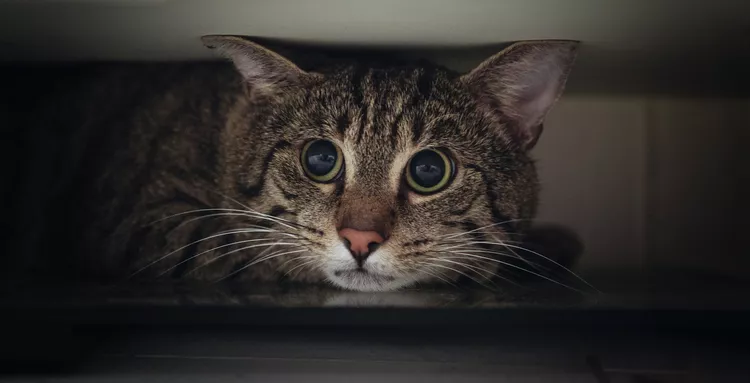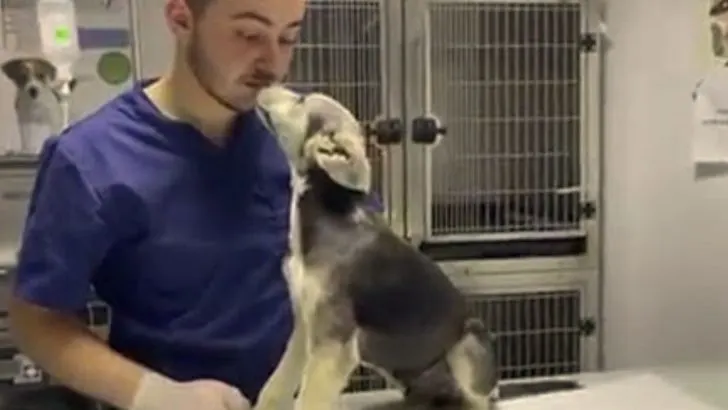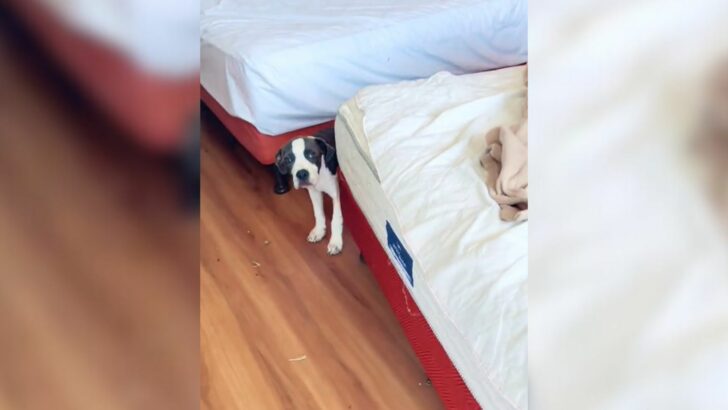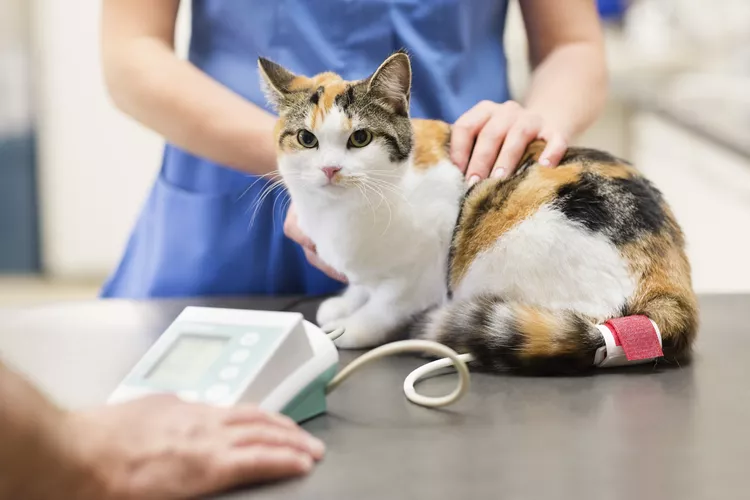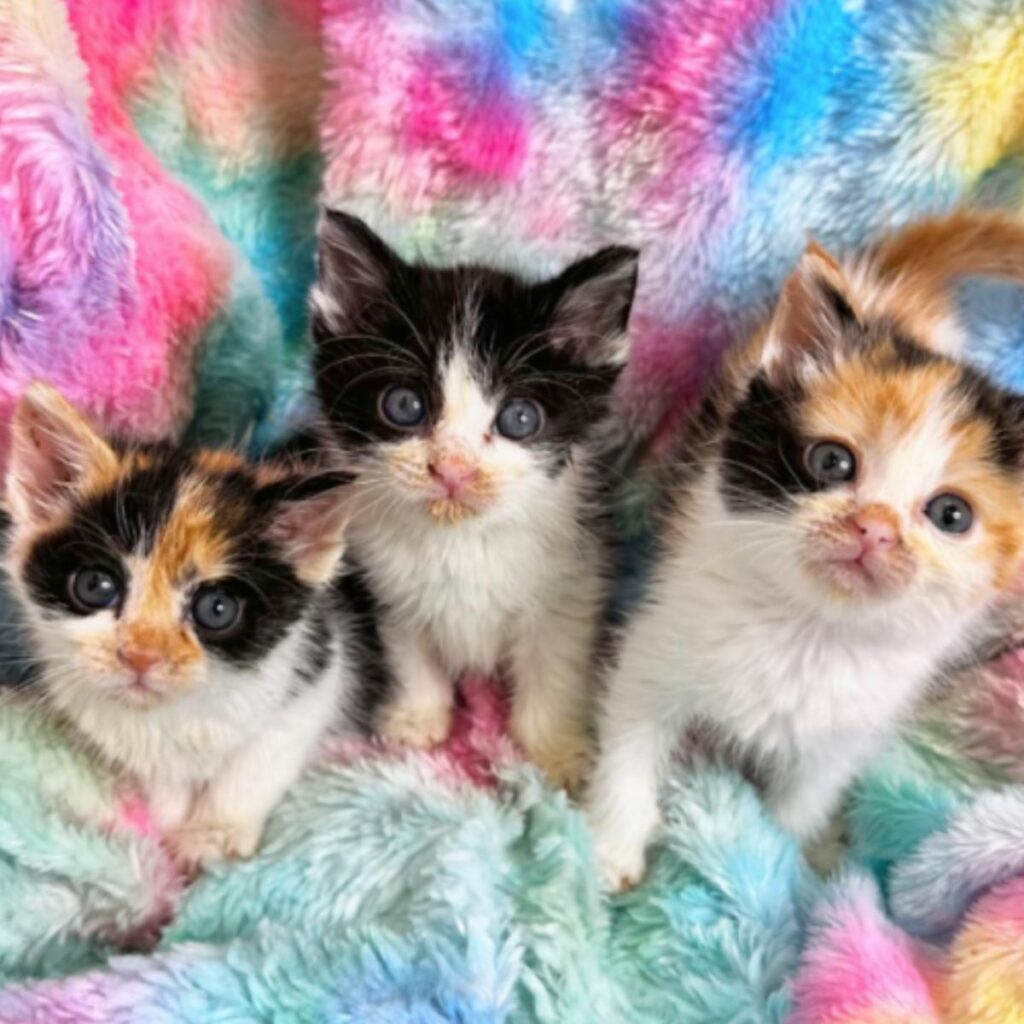If you have a cat then you probably already know that certain things can cause it to hide, hiss, run away, and even urinate or defecate outside of its litter box. All of these behaviors can be due to stress from the environment and it’s important for you to recognize them so you can do something to help your cat. Living a completely stress-free life is impossible but knowing some common causes and triggers can help you avoid unnecessary stress in your cat.
Causes of Stress in Cats
Just like people, every cat may react differently to a specific event, item, or person but there are common situations that are more likely to cause stress in your cat.
New People and Pets
Cats are often sensitive to any household changes including when people and pets living in your home come and go. New babies coming home, grandparents coming to live with you, divorce, roommate changes, marriage, new cats and other pets, and even just someone staying for one night can all cause stress in your cat, especially if your cat doesn’t already know them. Having company over for holidays is a common issue for many cats since it not only involves new people but many other stressors as well.
Construction
Odd smells, noises of construction, materials lying around, unfamiliar people, and other things involved with having work done on or around your house can cause stress in your cat. Simply painting a room or doing some light remodeling can trigger stress, too, so it doesn’t have to be a major construction project to cause problems.
Animals Outside
If your cat can hear, smell, and especially if it can see another animal outside it may be stressed. Outside cats are a common trigger for stress in your indoor cat but even being unable to catch birds outside that your cat sees can result in your cat having pent up stress.
Transportation
If you have to transport your cat for any reason then stress is a likely occurrence. Not being used to a carrier, the sights and sounds of a car or plane ride, or the anticipation of the destination (such as the veterinarian) can all cause stress.
Other Environmental Changes
Everything from robotic vacuums to Christmas decorations to moving boxes can cause stress in your cat. Changing where your cat’s litter box is located, the type of litter that is used, where your cat eats, and even where its favorite scratching posts are located are other examples of environmental changes that can trigger stress in your cat but any type of change in your home is a potential problem.
How to Recognize Stress in Your Cat
Hiding is one of the most obvious signs that your cat is stressed but it’s not the only one. Hissing, running away, growling, scratching items, and eliminating outside the litter box can be other signs of stress in your cat and should not be ignored, especially if they are occurring regularly. Monitor your cat for these symptoms and think back to what may have changed before you noticed these behaviors.
How to Help Your Stressed Cat
Thankfully there are a number of things you can do to help your cat if it is stressed. If you can figure out the source of the stress, the best thing to do is to eliminate that source but that isn’t always possible. You can’t get rid of a family member or new pet or stop construction because your cat is stressed about it but that doesn’t mean you can’t still help your cat.
Sprays, wipes, and diffusers containing pheromones are good starting points for helping to manage anxiety in your feline friend. Products like what Feliway™ makes can be used continuously and long term or as needed. They help cats feel calm and safe but may need to be used alongside something else if they don’t help by themselves.
Supplements and special diets are the next steps in helping your stressed cat. Various ingredients like L-theanine, milk whey proteins, magnolia, and phelodendron extracts have research showing they may help a stressed cat and can be found in items like Zylkene™ and even special cat foods like Royal Canin’s Calm™ diet.
If necessary, stressed cats may need a combination of pheromones, supplements, diets, and even medications. Fluoxetine, gabapentin, amitryptilline, and other prescription items may be recommended by your veterinarian for stress cases that cannot be addressed with other modalities. Depending on the situation, these may need to be given temporarily or long term but if you can help your cat feel less stress than whatever you need to do is worth it.
